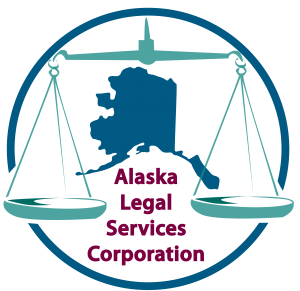The federal Fair Housing Act prohibits discrimination in the rental, sale, financing, or insurance of housing based on a person’s membership in one or more of the classes protected under the Act. The protected classes are race, color, religion, national origin, sex, familial status (the presence of children under 18), and disability.
It is therefore illegal to discriminate against a person in the provision of housing because of a person’s membership in a protected class in the following situations:
- the sale or rental of most housing;
- the terms, conditions, privileges of sale or rental, or provision of services or facilities in connection with the sale or rental of most housing;
- the advertising of a sale or rental of housing;
- the representation of the availability of housing for rental or sale;
- the provision of reasonable modification to a dwelling for persons with a disability at their expense when necessary for the full use and enjoyment of the dwelling;
- the provision of reasonable accommodation to the rules, policies, practices or services when necessary to provide persons with a disability the equal opportunity to use and enjoy the dwelling;
- the financing or refinancing of housing; and
- the provision of real estate brokerage services.
It is also illegal to coerce, intimidate, threaten or interfere with a person seeking to exercise rights under the Fair Housing Act.
In addition to the protected classes under the federal Fair Housing Act, in certain instances Alaska law prohibits housing discrimination based on marital status, changes in marital status, and age.
Fair Housing and Disability
Who Is Considered Disabled?
The federal Fair Housing Act prohibits discrimination against individuals who are disabled or who are associated with people with disabilities. Under the law, a person is disabled if he or she has a physical or mental disability that affects a major life activity, has a record of having such a disability, or is regarded as having a disability. Examples of disabilities include:
- Hearing, mobility, and visual impairments
- Chronic mental illness
- Dementia
- AIDS/HIV
- Cancer
- Developmental disabilities
- Alcoholism and past drug use
Does Housing Have to be Accessible?
The Fair Housing Act requires multi-family housing built for first occupancy after March 13, 1991, to have certain accessibility features. Some housing may also be subject to accessibility requirements of other laws, such as the Americans with Disabilities Act (ADA), local building codes, and other laws. In addition, disabled individuals can request reasonable accommodations and modifications. If you have questions about accessibility, contact the Fair Housing Enforcement Project.
What is a Reasonable Accommodation?
A reasonable accommodation is a change in a rule, policy, practice, or service that allows a person with a disability to have an equal opportunity to use and enjoy a home. Examples of reasonable accommodations include:
- allowing an assistance animal, despite a no-pet policy;
- allowing a tenant to have a live-in aide who is not on the lease to assist with daily care;
- assigning a reserved parking space to a tenant with a mobility impairment, even if parking is typically “first come/first serve.”
What is a Reasonable Modification?
A reasonable modification is a physical change to a unit or common area that allows a person with a disability to fully utilize the premises. In situations involving a private landlord, the person making the request must pay the cost of the modifications. Examples of reasonable modifications include:
- installing a ramp;
- installing grab bars in the bathroom;
- widening doorways;
- lowering countertops;
- installing lever door handles.
Signs of Possible Illegal Housing Discrimination
Some examples of illegal discrimination under the federal Fair Housing Act based upon protected class membership are:
False denial of availability: Advising someone because of their class membership that there are no available units when, in fact, there are.
“Sorry, we just rented the last unit.”
Refusal to deal: Refusing to rent, sell — or even negotiate — with a person because of class membership.
“We don’t rent to Alaska Natives.”
Discriminatory terms and conditions and provision of services or facilities: Giving less favorable terms in sales or rental agreements because of class membership.
“The rent is $200 higher for persons with a service animal.”
Discriminatory Advertising: Indicating any preference, limitation or discrimination because of class membership.
“Adults-only building – families with children need not apply.”
Lending Discrimination: Denying any type of home loan for discriminatory reasons by lenders, including banks, savings and loan associations, insurance companies, and others, or giving less favorable loan terms because of class membership.
“Minorities are charged higher interest rates on loans than similar white homeowners.”
Refusal to permit a reasonable modification to the unit at the expense of the person with a disability, in order that the person may have full enjoyment of the unit.
“You may not install grab bars in the bathroom.”
Denial of a reasonable accommodation to the rules and regulations of rental property in order that the person with a disability may have equal opportunity to use and fully enjoy their unit.
“It’s against the rules to have another person live with you, even though there is enough room and the person is necessary to help you with your health needs.”
